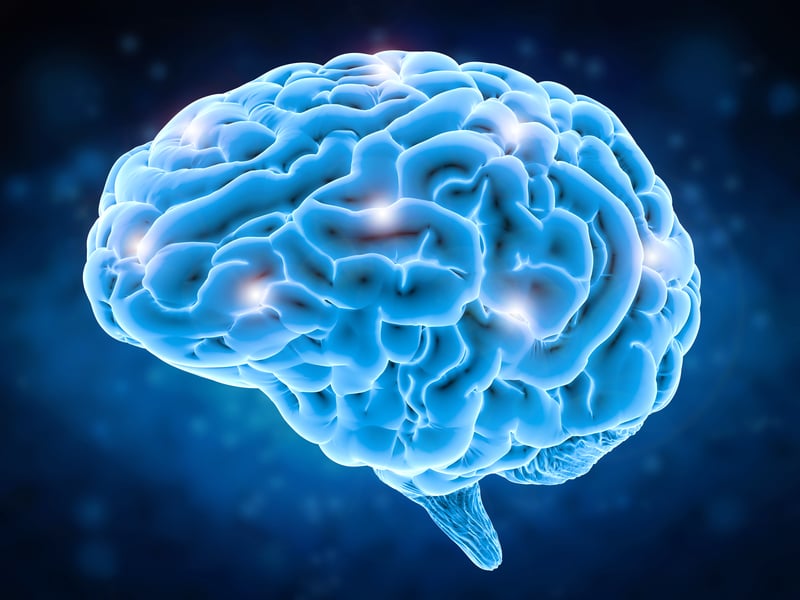8 Reasons Muscle Health Should Be a Top Priority This Year

It’s always essential to prioritize muscle health. And with the New Year upon us, it’s the perfect time to review your fitness and health routines to ensure you’re doing what it takes to maintain healthy muscles.
Why Is Muscle Health So Important?
Muscles give your body structure and strength. They help you create movements like sitting, standing, twisting, walking, and more. Without muscles, you couldn’t look around, nod your head, or grip a dumbbell. But muscles serve a much larger purpose than just providing a structural system for your body. They play a big role in a surprising number of health factors. From communicating with other organs throughout the body to balancing hormones and even insulin levels, muscle health is vital.
Studies also show that muscle health is related to better longevity. Those who lift weights regularly are shown to live longer and tend to have fewer age-related illnesses and injuries than those who don’t. So, if you’re looking for the fountain of youth, you found it!
Body Composition Is the New Standard
You may remember when general health was mainly determined by your BMI (Body Mass Index). Thankfully, there have been some major improvements in the way we assess body composition. The new focus is on the ratio of body fat to muscle mass and how much muscle you carry on your frame. The previous BMI test only focused on your scale weight versus the amount of body fat you had.
The new testing is more interested in determining your body fat to muscle mass ratio. Why is this important? Consider a 150-pound person with 50% body fat versus a 150-pound person with 20% body fat. Who is going to be healthier? As you can see, your body’s composition is more telling than your simple scale weight.
Benefits of Muscle Health
Muscle health has a lot more benefits than just pretty, toned muscles. It can help prevent chronic diseases, strengthen bones, and more.
Improved metabolism—Did you know muscle tissue is “metabolically active?” That means it requires calories to survive, whereas body fat does not need calories to exist. So, it naturally follows that the more muscle you have, the more calories your body will need to stay at the same weight. This translates to more muscle = higher metabolism.

Control blood sugar—It may not be a well-known fact, but muscles can store glycogen (for later use during tough workouts). To store the glycogen, muscles must effectively remove it from the bloodstream, improving insulin sensitivity. Your muscles will tap into these insulin stores and either use them while you’re exercising or flush them out. The more muscle mass you have, the lower your insulin resistance.

Keep your blood pressure in check—yes, weightlifting to the rescue again. Both cardiovascular exercise and weight training can improve the function of your blood vessels, preventing too much fluctuation in pressure. Better muscle health overall helps all your muscles, and yes, that includes your heart.

Sharpen your brain—interestingly enough, lifting weights can impact your brain health. When you train with weights, your muscles release what’s known as “brain-derived neurotrophic factor” (BDNF). This chemical helps strengthen the connections in your brain and helps your brain grow new cells, improving your cognitive abilities.

Control your weight—more muscle means you need more calories just to maintain your current weight. Since muscle helps you keep your metabolism strong, you can “get away” with eating more calories than others at your weight who have less muscle without gaining weight.

Avoid injuries—healthy muscles give you more control over your movements and help you maintain balance. Also, when you work your muscles, you help strengthen and support joints, ligaments, and tendons, thus reducing the chances of injury.

Stronger bones—did you know that weightlifting helps strengthen your bones? The more you work on your muscle health, the stronger your bones will get. Lifting puts pressure on them, forcing them to become stronger in order to adapt to the loads.

Boost your immunity—yes, it’s true! Recent research shows a strong correlation between healthy, strong muscles and your immune system. Studies show that those with more muscle mass are better able to fight off chronic diseases and infections. Training your muscles has a potent anti-inflammatory effect on your body, and your muscles also release compounds that help boost your immune system and even fight tumors and illnesses like cancer.
Here’s How You Can Keep Your Muscles Strong
Now that you understand the importance of strong muscles, what is your next step? Start a consistent weightlifting program. Focus on working all the muscles in your body two to three times per week. It’s also important to constantly challenge your muscles, so try to go up a little bit in weight, add another repetition or two, or change your lifting cadence each week to keep your muscles guessing and demand more from your body to grow.
It is also essential to get enough protein in your diet. At least one gram of protein per pound of body weight daily is recommended to give your muscles what they need to repair and grow after your tough workouts.
As you can see, having strong muscles is not only visually pleasing, but muscle strength will help you with daily functions and will even vastly improve your health. Longevity and muscle health go hand in hand, so it should always be a priority for you this year and every year.






